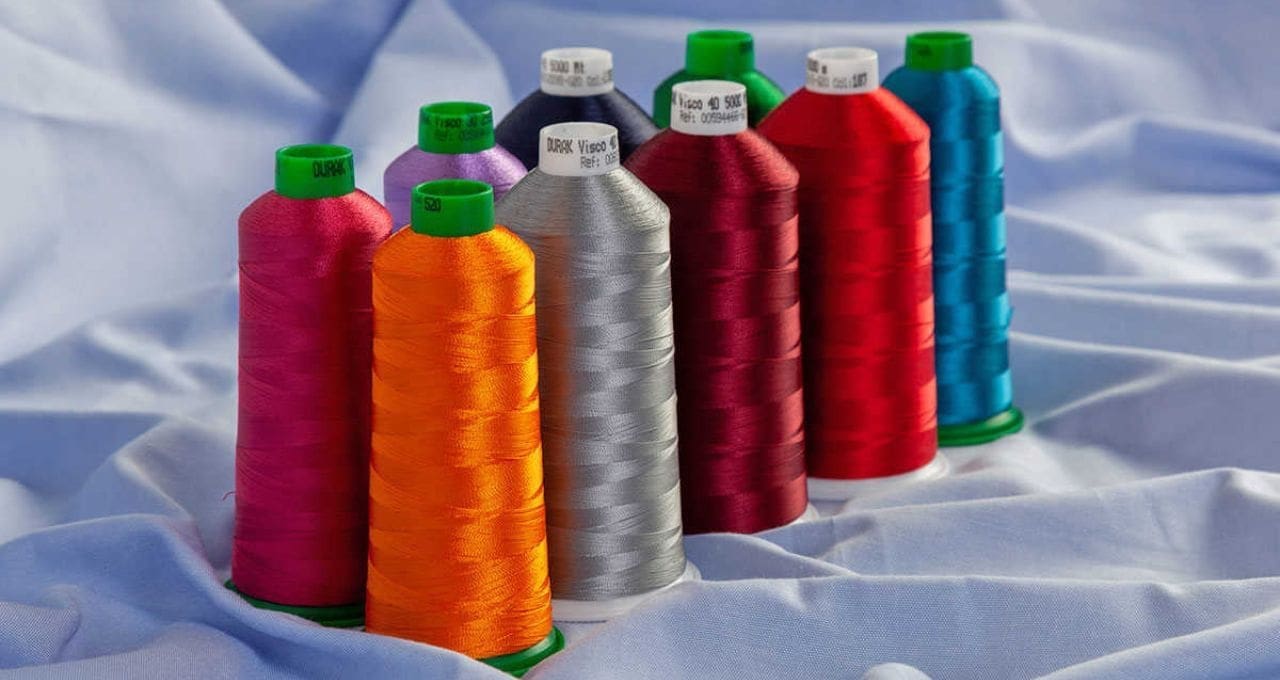Launching Lyosense and Lyostitch lyocell threads, Durak Tekstil increases sustainability and comfort in embroidery and sewing applications. Lyocell, which enables breathable, perspiration-free textiles, offers better performance than many natural fibres with its technical properties.
Durak Tekstil, one of the leading manufacturers of industrial sewing and embroidery threads, brings the comfort and naturalness of lyocell to the market. The new Lyosense embroidery thread and Lyostitch sewing thread made from 100% lyocell fibre respond to the increasing demands for sustainability and comfort in the apparel and fashion industry. The threads, of which Durak Tekstil successfully completed the R&D process and were successfully used for the first time by some of its leading customers, exceeded the expectations with their performance. Lyosense and Lyostitch threads appeal to manufacturers and brands that want to offer sustainability and comfort together in a variety of applications.
Having strong ties with embroidery manufacturers, Durak Tekstil’s Lyosense embroidery thread is especially preferred for embroidery with matt appearance and soft surface. These embroidery applications can be used in various applications from underwear to swimwear, from fashion products to home textiles. Tailor-made Lyosense embroidery threads meet the market in a wide range of colors.
Lyostitch sewing thread meets the comfort and naturalness demands of the garment industry. It creates an ideal solution for soft stitching applications at the points in contact with the skin in fields such as t-shirts, underwear, children’s and baby wear. Lyostitch offers a long service life with the necessary tensile strength and seam flexibility in sewing applications.
Lyosense and Lyostitch threads have superior durability and tensile strength, as well as naturalness, softness, breathability and comfort from lyocell roots. These threads have an average tensile strength of 1600 CN at 40 gauge and 1200 CN at 60 gauge, offering the strength and elongation values that embroidery and sewing manufacturers are looking for, with a 7-9% elongation at break. These values are in the same proportions as for cotton threads and are only a few of the technical advantages.
Lyosense and Lyostitch will be the choice of leading fashion brands
Saying: “A thread is not just a thread. It takes place as a knot, a stitch at the very beginning of sustainable, functional and artistic works. For this reason, as Durak Tekstil, we have been developing our portfolio in a versatile way” Durak Tekstil Board Member and Marketing Director Yiğit Durak stated that they give a strong message to the industry and stakeholders with the new lyocell threads.
Emphasising that Lyosense and Lyostitch lyocell threads are the most sustainable products in their product portfolio with Duracotton Bio organic cotton thread, Durak pointed out that these are even more sustainable products compared to cotton in terms of production process. Durak noted that these threads will be preferred by brands and manufacturers that focus on end-to-end sustainability, and continued his words as follows; “Our Lyosense and Lyostitch threads will further increase the sustainability ratio, which is very important for leading fashion and apparel brands. Our new lyocell threads, of which R&D process has been completed and started to be used by some of our partners in the industry, will turn into a remarkable product in the market in a short time. We will offer our threads in the desired color options with our rich dyeing capacity and will also provide the necessary certificates to the producers. These certificates are a source of trust for sustainability-oriented brands. The eco-friendly and comfortable/soft structure of Lyocell fibre will be felt even more in the field of apparel and fashion with our threads.”
Lyocell from nature eventually returns to nature
Regenerated cellulosic lyocell fibre is produced from wood pulp cellulose obtained from plants such as birch, oak and eucalyptus grown for industrial purposes. It does not require special irrigation and spraying during the cultivation process. It is accepted as a real alternative to cotton with its naturalness and sustainability features.
Lyocell, which has more absorbent properties than cotton, also has a soft structure comparable to silk. Thanks to the microscopic channels on its surface, lyocell fabrics absorb perspiration and then release it into the air, providing extra comfort in use, keeping it cooler than linen with its breathability. Fabrics made of lyocell fibre have high color fastness and manage to maintain their brightness and color for a long time even after repeated washing processes.
In addition to these practical advantages, the production of lyocell fibres requires less time compared to other fibres. This time-saving production method has a smaller environmental footprint. Lyocell, providing significant gains in terms of carbon emissions thanks to the use of industrially grown trees, also has an eco-friendly process since the amine oxide used in production can be recycled. Thanks to a closed-loop extraction process, no contaminated water waste is generated after lyocell production. This fibre is considered more eco-friendly than numerous other natural fibres, such as cotton, due to the use of organic solvents in its production and the recovery of water. Lyocell products are fully soluble and fertilised in nature. In short, the product obtained from nature eventually returns nature again.

